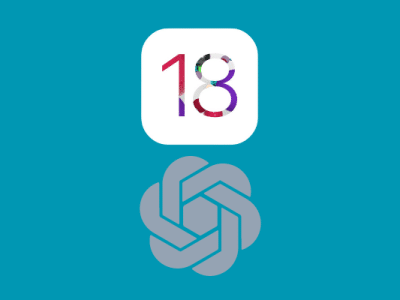Recently, AI has been hitting headlines due to breakthroughs in various fields. One of the sectors that have embraced AI is early childhood education. AI provides endless opportunities and can be seen as a guiding star and beacon of help in the educational landscape. Early childhood education is a crucial stage in every child’s life. At this stage, the foundation for future learning is made. AI has the potential to make learning an experience rather than just a process. Let’s explore ways AI is boosting early childhood education.
Personalized Learning
AI has made it possible to tailor-make the learning process to fit a student’s strengths and weaknesses. AI algorithms used in AI-powered educational platforms can analyze a child’s strengths and weaknesses. By doing so, they help identify areas that need improvement. Later, they provide customized exercises and learning material targeting the weakness, improving the child’s overall performance. For example, if a student is weak in counting, AI-powered games can focus on reinforcing counting ability. If students do well in diagram questions, they learn well through pictures.
AI can tailor educational content to fit different types of learners and their learning skills. It’s like how a professional essay writing service tailors every paper to match every client’s needs and requirements. Even though the essay topic can be the same, the writers for hire customize the papers depending on each client’s instructions, resulting in unique papers. A good example of a personalized AI is the SmartStart AI. This platform uses algorithms to analyze a child’s progress and adapts the curriculum accordingly. It can adjust the difficulty levels of tasks and provide additional exercises to help in learning.
Adaptive Assessment and Feedback Systems
Traditional assessments apply a one-size-fits-all assessment technique, which is stressful for children. This type of assessment leaves some children feeling unchallenged while others feel left behind or less knowledgeable. AI has changed the narrative by introducing adaptive assignments that adjust the difficulty level based on a child’s performance. It fosters a positive attitude toward learning and a progressive learning experience.
AI has enabled feedback-driven systems. Children can now undertake tasks and receive feedback on their results and where they have gone wrong, unlike when they had to wait to go to school to get the answers. This move enhances learning by ensuring immediate responses where pupils can understand and correct their mistakes immediately.
Interactive Learning Experiences
In traditional learning systems, children are passive learners and are expected to absorb information from textbooks. This learning mode is effective but less interactive, thus leading to boredom. AI has changed this by bringing life to learning. Augmented and virtual reality make learning interactive and more real. Take a scenario where kids learn about different wild animals in the jungle. With virtual reality headsets, they can travel into the jungle, see all the animals, and interact with them. In return, it creates memories and makes education fun and an adventure that the children look forward to daily. It’s like when the professorstate-journal.com sets an interesting and fun essay topic to write. You’ll be motivated and look forward to writing the essay, and the chances of thinking, “Should I pay someone to write my paper?” will be minimal.
Enhanced Teacher Support
While many people complain that AI is replacing jobs, it is also providing support by being teachers’ trusted assistant in education. In early education training, teachers have a lot to do, from running administrative tasks to ensuring an all-around child upbringing that includes exercises, fun reading, storytime, assignments, and curriculum teaching. These tasks are tedious and time-consuming. AI has enabled teachers to plan their lessons, grade assignments, and assess students’ progress. With one click, teachers can grade assignments and understand students’ needs, thus ensuring that each student is well cared for. It also saves time, ensuring that every aspect of learning is given adequate attention.
Early Detection of Learning Disabilities
Aside from making learning fun and engaging, AI helps to identify potential learning disabilities in children. Due to the AI’s ability to analyze data from the kid’s interaction with the platform can identify trends and patterns in their learning curve, hence pinpointing learning disabilities. This early detection is crucial since the disabilities can be addressed early – realizing disabilities later in life can cost a child the most crucial aspects of childhood learning. AI platforms such as Cognoa have been tailor-made to identify disabilities, for instance, detecting autism in young children. Parents and teachers can then take the necessary actions to support the children in education.
Language Development
Language development is important, and early childhood education lays the groundwork for effective communication. The emergence of AI-driven language platforms is a notable development in early childhood education. These AI platforms enable children to learn and nurture their language skills. They offer support and use speech recognition to identify a child’s vocabulary, pronunciation, and comprehension. It also uses engaging activities such as puzzles, storytelling, and other games to boost kids’ language mastery. Most platforms adjust the content based on the pupil’s progress, thus creating a customized learning approach. Besides, some platforms support various languages, making it easy for a child to learn more than one language.
Cognitive Skill Development
It is in early childhood that the cognitive ability is developed. A child’s mind needs to be constantly stimulated to hone cognitive skills, and AI has become a go-to companion for parents and teachers to improve children’s cognitive abilities. AI uses interactive games and activities to stimulate the brain. These games are tailored to enhance creativity, problem-solving, and attention to detail and improve critical thinking. They include puzzles, maze challenges, and other fun games that involve the application of the mentioned skills.
Upshot
The advantages of integration of AI into early childhood education are magical and numerous. AI has helped parents and teachers unlock children’s full potential and ensure that learning is both a process and an experience. With AI, kids develop cognitive skills easily, improve language, and enjoy interactive learning. Besides, AI helps achieve personalized learning, adaptive assessment, enhanced teacher support, and early detection of learning disabilities. More is yet to come because AI keeps evolving and better, and more benefits come with new developments.















Comments